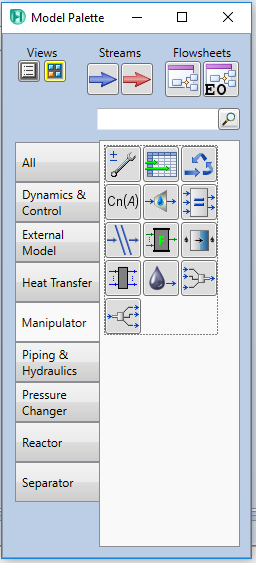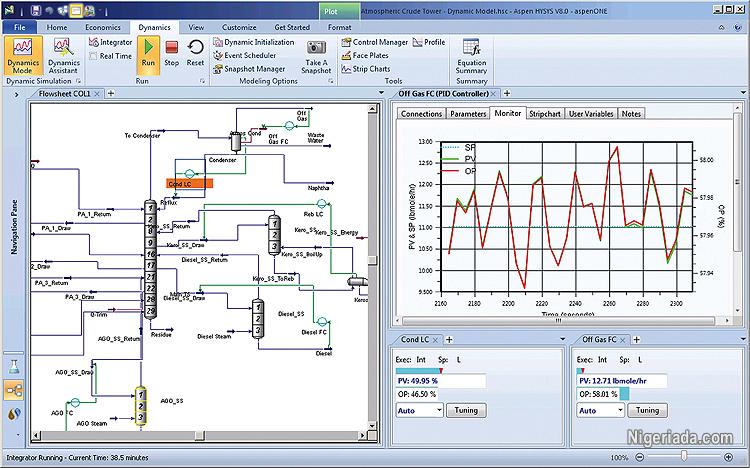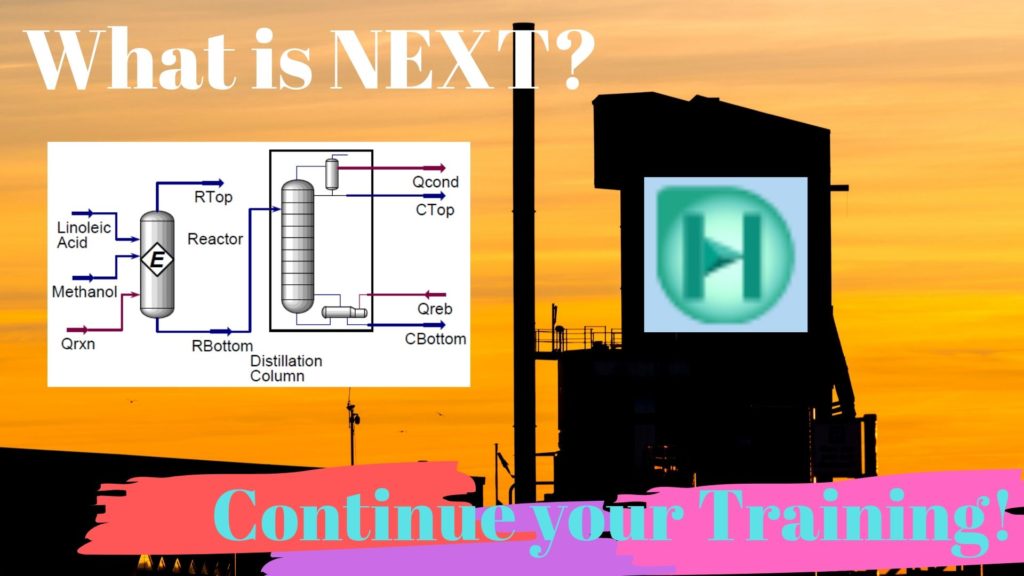Picture this: You have already attended several “BASIC” or “INTRODUCTORY” courses and now want to improve your simulation skills further. You keep getting the same material online, in workshops and other “basic” courses and now wonder: What should be the next course I take?
Actually, there is no “correct” course for you, you could take a variety of courses… But the ones I would recommend you are the following:
An Intermediate Course
I would say this is the most common path to take, as it is pretty common.
Simply continue with an Intermediate course, it should cover most of “common” topics or even “advanced” ones.
You should be increasing your knowledge in:
- More Unit Operations, specially “Rigurous” UO.
- Explore the Physical Property Environment further
- Hierarchy Blocks and/or User Blocks
- Use more the Analysis tools such as Optimization, Restraints, Case Studies, etc…
- Learn more on how to manipulate the flowsheet, better formatting and presentation.
If you are interested on a course like this, do not miss to subscribe to my Newsletter as I will be launching one SOON!
Petroleum Assays & Oil Manager Course

One of the most powerful tools of HYSYS is the ability to model crude oils from all around the world, with different properties and even with just few bulk properties.
The Oil Manager and the Petroleum Assay Tools will allows us to model such crude oils.
The required inputs are typically:
- Density
- Viscosity or API
- TBP Curve
- Molecular Weight
- Light Ends Composition
With that data, HYSYS will be able to simulate “hypothetical” compounds, or also called pseudocomponents which represent several types of chemicals within the crude oil.
With this data, we will be able to generate several CUTS for our products.
This crude oil can be blended with several types and eventually installed in the flowsheet pretty similar to a “stream”.
Note that most of petroleum refining courses will require you to know basic Petroleum Assay arrangement.
If you are interested in this course, ENROLL NOW!
Physical Property Related Course
In your BASIC course, probably you were wondering on all the tools that were present in the “PHYSICAL PROPERTY ENVIRONMENT (PP Env.)” and all the packages, binary parameters, property sets and many other things which can be modified.
As you know, the PhysProp Environment is one of the MOST IMPORTANT parts in your simulation. It will literally change the results of your simulation if incorrectly set.
That’s why it is very important to understand several types of packages and property methods.
Also, the PhysProps Environment will allow you to model NEW and INEXISTENT compounds as well as theoretical models.
You can select which types of equations and models your Property Method will be using and also the set of properties (property sets) that you want to get whenever running your results.
Also, most importantly, you will get to know the Analysis tools present in the PhysProp such as Binary, Pure, Tertiary Analysis.
If you are interested, just subscribe to the Newsletter as I might create one course related to this!
NOTE –> about 30% – 50% of the physical Property Environment is studied in the Aspen HYSYS – Petroleum Assays and Oil Characterisation
Manipulators Course
Manipulators are those little blocks or tools that will help us do “mathematical” or “logical” operations. Those can be very simple, for instance:
- a multiplication of a stream
- duplication of properties
- Adjust a Stream
- Add Spreadsheet
- Whenever adding a Recycle Stream
- Balance
- Blenders, etc…
This type of courses are aimed mostly for users with knowledge in coding.
It won’t hurt you if you take it 🙂

Specific Process or Industry Course
If you are willing to learn more on your specific type of process or industries, or even learn more on new industries to open your horizons, then this is a good alternative for you.
These type of courses will focus on the simulation of processes in specific type of industries such as:

- Petroleum refining
- Petorchemicals
- Plastics
- Cement
- Biotech
- Pharma and so on…
Definitively worth it if you just want to go directly to the simulation.
I will be creating a BOOTCAMP for HYSYS applicaitons, ensure to subscribe to the NEWSLETTER for more information!
Specific Unit Operation Course
There are very straight forward courses which will explore several types of Unit Operations. The most common types:
- Heat Exchangers – multiple streams, shell & tube, plate, etc…
- Mass Transfer and Separation technologies – distillation columns, absorbers, extractors, adsorbers, membranes, etc…
- Reactors – Plug flow reactors, Continuous Strirred Tank Reactors, Packed Bed Reactores, Fluidized Bed, etc…
- Petroleum Refining Units – Hydrotreaters, Hydrocrackers, Naphtha Treaters, Blenders, etc…

Specific Type of Substance Course
If you are focused on specific type of materials such as fine chemicals, pigments, colorants, pharmaceuticals, new materials, construction, aeronautic, bio, solids, electrolytes, etc… You then should take a course based on this.
The advantage of this is that you will be able to model such type of substances in the physical property environment AND in the simulation environment (unit operations and flowhseeting)
Now you know better!
Which course are you going to take? If you are interested in learning Aspen HYSYS, definitively check out my Full Aspen HYSYS Training – Bundle Courses
Happy simulations!

